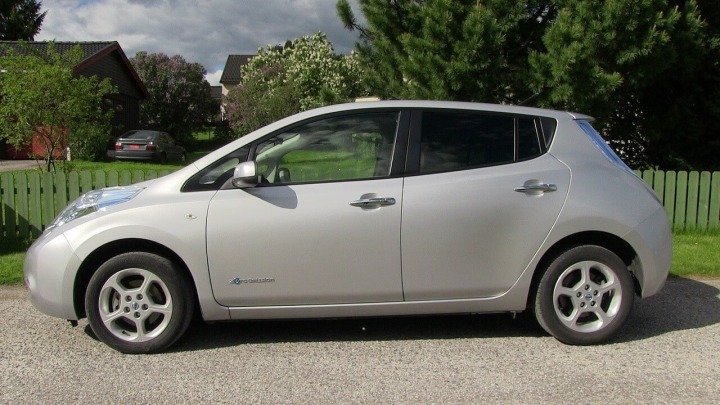Introduction
Affordable electric cars offer an exciting opportunity for drivers looking to save money on fuel and maintenance costs while also reducing their environmental impact. An affordable electric car is generally defined as an electric vehicle with a manufacturer's suggested retail price (MSRP) under $40,000. As battery costs fall and more automakers enter the electric vehicle market, affordable options are expanding rapidly.
Electric vehicles, including affordable models, run entirely on electricity stored in a battery pack. They use an electric motor rather than an internal combustion engine. The motor is powered by the battery, which is charged by plugging the car into an electric power source. Affordable electric cars typically have a range on a single charge of 150-250 miles.
Buying an affordable electric car comes with many benefits and advantages compared to a traditional gas-powered vehicle. This article will provide an overview of affordable electric car options, savings, performance, charging considerations, and incentives that make them accessible to more drivers.
Lower Operating Costs
Electric vehicles have much lower day-to-day operating costs than gas-powered vehicles. The biggest ongoing expense for a gas car is fuel costs, but charging an EV is far cheaper than refueling at the gas station. On average, fueling a gas-powered vehicle costs over 10 cents per mile while charging an EV costs just 3-4 cents per mile.
EVs also have fewer fluids to change and no engine air filter, timing belt or spark plugs to replace. Brake pads and rotors tend to last longer too thanks to regenerative braking. Overall, maintenance costs for EVs are about half as much compared to a gas vehicle. The total savings in fuel and maintenance over the lifetime of an electric car can add up to thousands of dollars.
Environmental Benefits
Electric cars produce zero direct emissions, which can significantly reduce your carbon footprint. Gasoline and diesel cars emit harmful pollutants from their tailpipes, which contribute to climate change and smog. Electric vehicles have a smaller lifetime carbon footprint even when accounting for emissions from electricity production. Driving an EV is one of the most impactful steps an individual can take to reduce their contribution to global warming.
In areas where a high percentage of electricity is from renewable sources like solar and wind, the climate benefits are even greater. Some estimates show that driving an electric vehicle can reduce your carbon emissions by over 50% compared to even the most fuel efficient gasoline car. As more renewable energy comes online, electric cars will become even cleaner over time.
Going electric can also help improve air quality and public health, especially in urban areas. Eliminating tailpipe emissions improves local air pollution and reduces related respiratory illnesses. Studies show a widespread transition to EVs could save thousands of lives and hundreds of billions in health costs. The environmental advantages of driving electric extend beyond curbing climate change.
Performance
Electric cars offer a unique driving experience thanks to their instant torque and quiet operation. When you press the accelerator in an electric car, the motor delivers full torque instantly. This allows electric cars to accelerate very quickly from a stop. Electric motors also operate very quietly compared to internal combustion engines. The lack of engine noise provides a smooth, quiet ride.
While electric cars don't offer the raw horsepower or top speeds of some high-performance sports cars, their instant torque makes them feel quick during everyday driving. Electric cars are able to overtake and merge onto highways easily thanks to strong low-end acceleration. The linear power delivery and lack of gear shifts also make electric cars feel responsive in stop-and-go traffic.
The quiet operation of electric motors allows you to enjoy the drive without excessive noise. You'll be able to listen to music or have conversations without needing to raise your voice. Electric cars produce very little noise pollution as well, which is a benefit for communities. Overall, the instant torque and quietness of electric cars provide a futuristic and seamless driving experience.
Charging
One of the main concerns with electric cars is charging. Fortunately, there are several convenient charging options to fit different needs:
Home Charging
Most EV owners do the majority of charging at home overnight. Installation of a home charger runs $500-$800 on average. With a standard 120V outlet, you can get about 4 miles of range per hour of charging. Upgrading to a 240V outlet cuts charging times in half.
Public Charging
Public charging stations allow you to top off your battery when you're on the go. Charging networks like ChargePoint have over 100,000 stations in North America. Public stations are usually slower, providing 10-25 miles of range per hour. Apps make it easy to locate stations and pay for charging.
Fast Charging
Fast charging stations can provide 60-200 miles of range in just 20-30 minutes. They work by pumping high levels of direct current (DC) directly into the battery. Fast charging makes long distance travel more feasible in an EV. The number of fast charging locations is steadily growing across major travel corridors.
